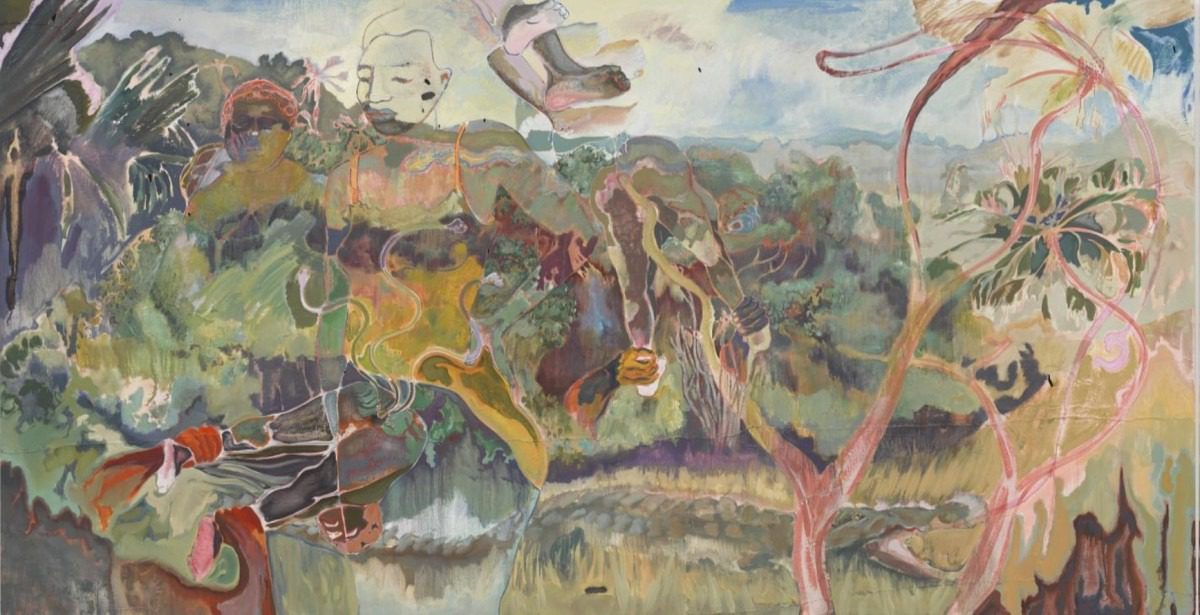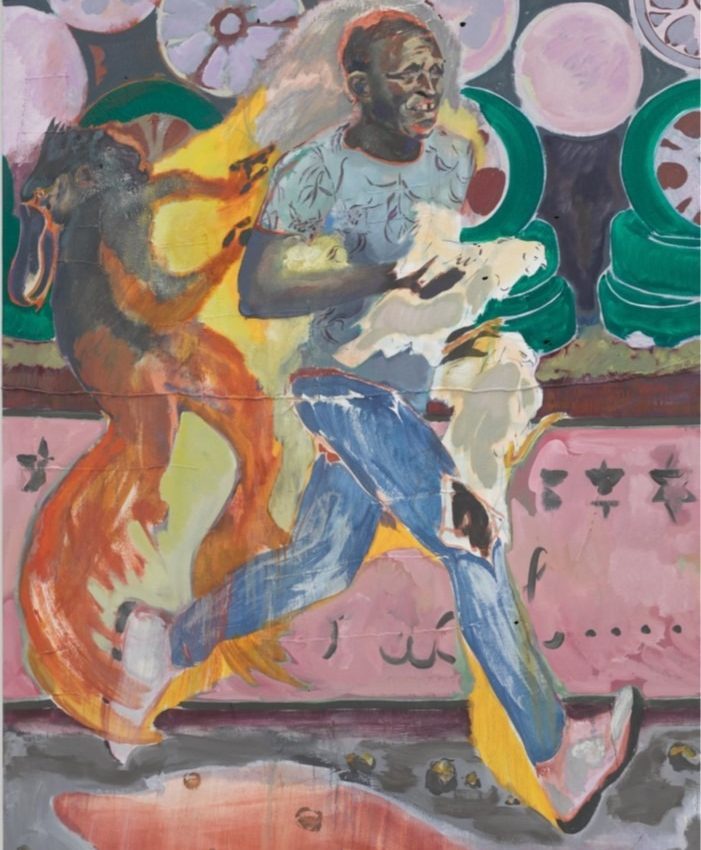May 23 - Sep 19
00:00
Location
Royal Academy
Colonial tropes and layered visions, Michael Armitage’s show is a fever dream of possibility, hopes, violence and movement. It’s hard to encapsulate the grandeur of this exhibition but reviews elsewhere are already indicating that this is a landmark exhibition by which others will be marked. The setting, social context and artistic mastery here have aligned. The Guardian’s resident curmudgeon Jonathan Jones has hailed Armitage as a ‘true artist’ and he’s not wrong, Armitage delivers technically, intellectually, emotionally, and spiritually, the viewer is rocked by the darkness of the past, the resilience of the present and the optimism of the future; dare we say post-post-colonialism? No, and we shouldn’t. What an achievement to walk amongst the battlefields of culture wars and redefine the scarred ground. This is an African voice that is inhabiting the intellectual space over-mined by handwringing Western academics and dominating, this vibrant perspective is resplendent and the black shadows in its wake are called and counted. Where are you?
The paintings in this series are simply unforgettable, they persist psychologically and change the viewer. Goyaesque, the gross nature of humanity shown IS humanity, these aren’t cuddly native tropes but real people, beautiful in figure and ugly in action, they perform in worlds as limited and deterministic as poverty, but their pain is real. Their hopes are brave, and they are here, in all of us.
The approach takes African scenarios within classical Western paradigms; elections, struggles, fear, and challenges them through a surreal palimpsest of racism, symbology, myth. Armitage’s works, rough and seamed, connected and broken, whole and holed, personal and alienated, make us feel without the comfort of knowing. The paintings read heavy with history though only short years old. The artist is aware of the faults and holes of the canvas and works with its imperfections as tells that suggest academic narrative, but promise the story. Motifs of the frog teacher emerge dreamlike, aligned with the canvas, the background, the history, narrators through which transient humanity is played out with shocking dramatic verve. The sea of faces are like waves on a beach, each one forgotten quickly, but slowly grinding ashes to ashes, and dust to dust.
Armitage has devoted a room of his exhibition to the artists that inspired him, African artists that Westerners might overlook caged within expections of Art as satellites to our world view, but through Armitage we revalue them, they ARE fiery truths lighting the way through clandestine valleys besets by evils from our modernity. Paths open to all of us regardless of origins, with Paradise Edict Armitage has brought us together.

The Paradise Edict, 2019.
Exhibition notes:
Michael Armitage is a Kenyan-born artist who works between Nairobi and London. His colourful, dreamlike paintings are loaded with provocative perspectives that play with visual narratives and challenge cultural assumptions, exploring politics, history, civil unrest and sexuality.
Made using Lubugo bark cloth, a culturally important material made of tree bark by the Baganda people in Uganda, many of his large-scale works draw on contemporary events, combining these with Western painting motifs.
This spring – just over 10 years since Armitage graduated from the Royal Academy Schools – we bring together 15 of his large-scale paintings from the past six years, exploring East African landscapes, politics and society.
Alongside will be a selection of 31 works by six East African contemporary artists: Meek Gichugu, Jak Katarikawe, Theresa Musoke, Asaph Ng’ethe Macua, Elimo Njau and Sane Wadu. Chosen by Armitage for their important role in shaping figurative painting in Kenya, these seminal artists have also had a profound impact on his own artistic development. A version of this part of the exhibition will be shown at the Nairobi Contemporary Art Institute, a non-profit visual arts space founded by Armitage.
Armitage has also selected works by three Kenyan artists – Wangechi Mutu, Magdalene Odundo and Chelenge van Rampelberg – that will be displayed in The Dame Jillian Sackler Sculpture Gallery, just outside the exhibition galleries. This display invites conversations between the three artists’ works and sculptures from the RA’s collection, which were curated by Richard Deacon RA. (Please note: this display is only accessible to Michael Armitage ticket holders).
Exhibition organised by Haus der Kunst, Munich, in collaboration with the Royal Academy of Arts, London.















